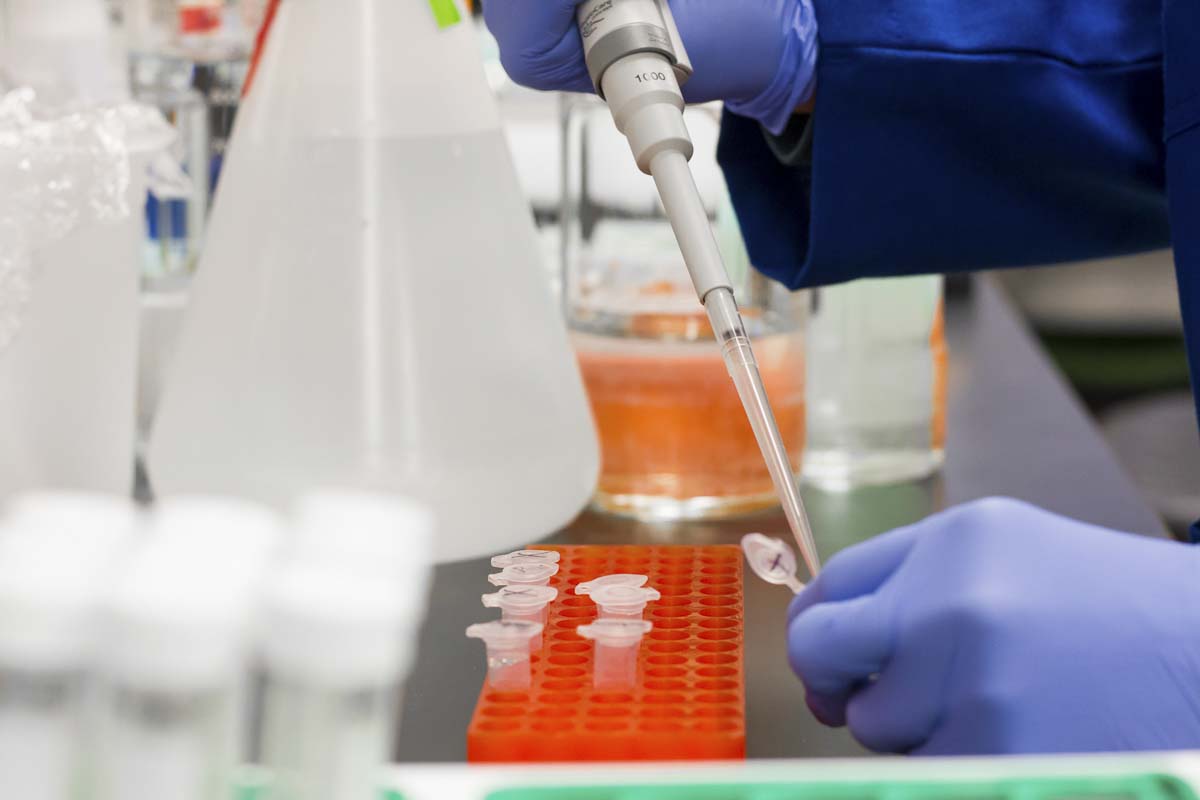The department is working with providers to track supply shortages during the ongoing pandemic
CLARK COUNTY — Frustration continues to build for Clark County Public Health over a growing scarcity of testing kits for COVID-19.
“It’s frustrating for those of us in public health, it’s frustrating for the providers and certainly frustrating for patients,” said Dr. Alan Melnick, the county’s health director and public health officer at a Clark County Council meeting on Wednesday. “It impedes our ability to control the pandemic.”
It has been nearly two weeks since Melnick first addressed the Clark County Board of Public Health, which is made up of the Clark County Council members, warning them that a shipment of rapid point-of-care tests meant for The Vancouver Clinic had been diverted to Florida, the latest epicenter of the COVID-19 outbreak in the United States.

“Right now, it’s kind of a free for all with the states competing with each other,” Melnick said. “To really deal with this, we need some sort of, like, Manhattan Project, where we really get this taken care of on a national level.”
The Manhattan Project was a World War II era effort to build an atomic bomb, two of which were dropped on Hiroshima and Nagasaki in Japan, effectively ending the war. It cost billions of dollars, and involved hundreds of the nation’s top scientists working together.
Clark County officials scrambled, along with much of the country last April, as cases spiked in New York City and parts of the west coast. Until recently, most providers had finally secured enough testing supplies to administer one to pretty much anyone who had symptoms, or had been exposed to a known case.
Once again facing short supplies of swabs, and reagents to transport samples to the lab, many providers are pulling back and limiting testing to people with symptoms, hospital admissions, and high-risk individuals exposed to a known case.
Even when tests can be administered, results have been painfully slow at times, said Melnick. Some national labs have seen result times stretch to eight or even 10 days in some cases.
“If there’s a turnaround time, seven or eight days, that’s gonna happen with a national lab,” said Melnick, “that’s unacceptable.”
Unacceptable, because contact notification is largely only effective when cases can be located quickly, and then close contacts are notified and told to self-isolate. The state requires that confirmed cases be contacted within 24 hours of a positive test, and close contacts notified within one day after that. Any further delay means contagious people could be spreading the virus in their community without knowing they’re infected.
Clark County Public Health has been asking providers to give weekly updates on testing supplies though, to date, only The Vancouver Clinic has been able to put the data together.
“Which, I think, isn’t surprising given the amount of work it is to put these together,” said Melnick.
PeaceHealth Southwest has said they believe their supply of testing equipment is sufficient, and they’ve switched to Northwest Labs, which has a current turnaround time of 24 hours.
While many different tests exist for COVID-19, each generally uses a proprietary reagent or swab. The Vancouver Clinic notified Public Health they hope to have new equipment in place by October that can use a wide variety of testing mediums.
Even then, Melnick pointed out, that doesn’t fix the issue of testing supplies, in general, being difficult to come by.
“I’m not sure this is going to get better,” he said, “and I’m not sure, honestly, what leverage we have at a local level to get more supplies.”
At Wednesday’s meeting, several council members said they would like to see the Washington State Association of Counties and the state’s congressional delegation get involved, urging national action to build testing supplies.
I know that we’re competing nationally, and it’s really unfortunate that we’re still in this position after so many months,” said Councilor Gary Medvigy, a retired US Army major general who has pushed for more frequent updates on the county’s status when it comes to testing and hospital capacity.
“In a major military operation, we get these briefings twice a day, not once a week, on where our supplies are presently, where they’ll be tomorrow, where they’ll be in three days and anticipating shortfalls,” said Medvigy. “So decision makers can make good decisions on whether to restrict testing, or start rationing it again and how that would happen. You know, this just… decisions are being made in a vacuum at this point.”




